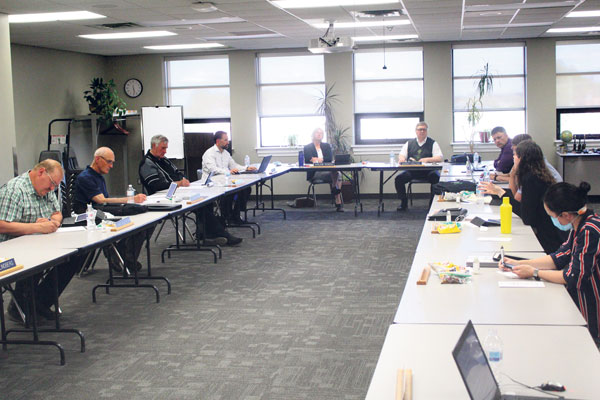
After reviewing the board’s responses to the Truth and Reconciliation Commission’s calls for action following their previous meeting in June the Saskatchewan Rivers School Division board is taking the next steps.
The division has reviewed what has been done for calls to action and saw where they have succeeded. As well it be taking part in an engagement in the fall 4 Seasons of Reconciliation online development program for trustees.
At their regular meeting on Monday, June 15 the board committed to take part in the program.
“It will be a great way to expand the learning of the trustees in terms of understanding the history and legacy and what Truth and Reconciliation really is. So that will be I think a significant benefit for our trustees and administration and we will make that available to staff,” director of education Robert Bratvold said.
The Saskatchewan School Boards Association (SSBA) is offering to subsidize the program for trustees.
The course will take place in the next school year and have committed to spreading the word.
“Once we have completed it we are going to be encouraging all of the school administrators to do it and then eventually our teaching staff as well. It is something that our school division is committed to. And now that things hopefully there will be a little bit of a lull now and they will be able to get online and be able to do this,” board chair Barry Hollick added.
The report showed that the division has been very active in the calls to action and outlines what the division has accomplished to support Truth and Reconciliation.
“A pretty long list of things that have been happening over the last couple of years and this year too,” Bratvold said.
As part of the December, 2019 board/director seminar the board was asked to identify a TRC call for action. According to director of education Robert Bratvold the board discussed what to make a priority for the next school year.
On the subject of child welfare they called upon all levels of government to fully implement Jordan’s Principle. Jordan’s Principle makes sure all First Nations children living in Canada can access the products, services and supports they need, when they need them. Funding can help with a wide range of health, social and educational needs. The division applied for and received Jordan’s Principal and it is ongoing.
Jordan’s Principle is named in memory of Jordan River Anderson. He was a young boy from Norway House Cree Nation in Manitoba.
They also called upon federal, territorial and Aboriginal governments to develop culturally appropriate parenting program for Aboriginal families. This was accomplished through support of the KidsFirst program, supporting schools accessing Catholic Family Services and working in partnership with the Prince Albert Early Years Resource Centre which was supposed to have a grand opening in March that was delayed by the COVID-19 pandemic.
In education, calls included improving education attainment levels and success rates, developing culturally appropriate curriculum, protecting the rights to Aboriginal languages, including the teaching of Aboriginal languages as credit courses. Cree 10 courses are now available at Carlton Comprehensive and Wesmor Public High School. Development of new language courses are also in the works in the division. As well a Kindergarten Cree Language Program will be offered this fall at John Diefenbaker School.
Other areas covered in the calls included language and culture, justice, professional development and training for public servants, education for reconciliation and sports and reconciliation.

